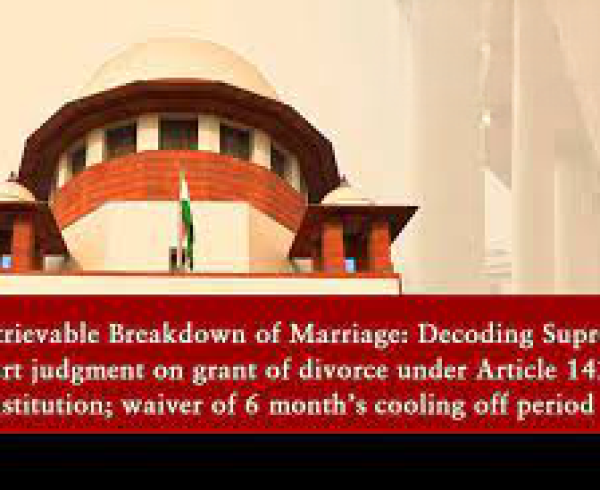
Partition of family property refers to the division or distribution of jointly owned property among the legal heirs. The division can occur either by mutual agreement or through a legal process, such as filing a partition suit in court.
- Determining Share of Legal Heirs:a. With a Will: If a valid will exists, the distribution of property will generally follow the provisions stated in the will. The share of each legal heir will be determined according to the directions specified in the will if the propery is self acquired property and not paternal property.b. Without a Will (Intestate Succession): If there is no will, the division of property will be governed by the applicable succession laws in India. The specific laws depend on the personal laws applicable to the deceased (e.g., Hindu Succession Act, Muslim Personal Law, etc.). These laws outline the share of each legal heir, taking into consideration factors such as the relationship with the deceased and gender of the legal heirs.
- Filing a Partition Suit: To file a partition suit in court, the following general steps are involved:a. Engage a lawyer: Consult and engage a lawyer experienced in property law and partition suits to guide you through the process.b. File a Suit: The lawyer will help you draft a plaint (a formal written complaint) that includes relevant details such as the description of the property, names of co-owners, and the nature of the claim. The plaint is then filed in the appropriate court.c. Court proceedings: The court will issue summons to the defendants (co-owners) named in the plaint. Both sides will present their arguments, produce evidence, and the court will evaluate the case based on the evidence and applicable laws.d. Decree of partition: If the court determines that partition is justified, it will pass a decree of partition, outlining the division of the property among the legal heirs.
- Injunction Order: An injunction order may be sought during the partition suit to prevent any further disposal or alienation of the property until the final determination of the case. The court may grant an injunction order if it is deemed necessary to maintain the status quo and protect the rights of the parties involved.
Landmark cases related to partition of family property and the rights of legal heirs include:
- Prakash v. Phulavati (2016): Supreme Court clarified the retrospective effect of the 2005 amendment to the Hindu Succession Act, ensuring equal rights for daughters in ancestral property.
- Danamma v. Amar (2018): Supreme Court held that daughters have equal rights as sons in coparcenary property, irrespective of when they were born.
If your partition dispute is in Indore region, it is advisable to consult with a qualified property lawyer in Indore to understand the specific laws and procedures applicable to your situation, as property and succession laws can vary based on personal laws and individual circumstances and documents executed by primary owner.
Article by: Raghvendra Singh Raghuvanshi & Nidhi Vaidya, Advocates-High Court of MP, Indore.






Leave a Comment